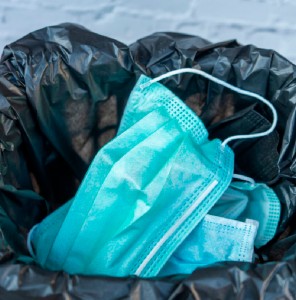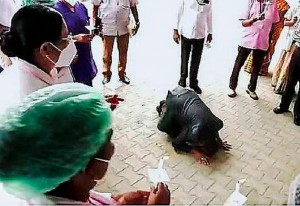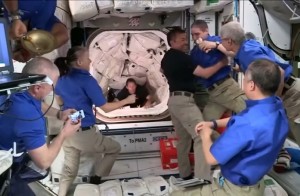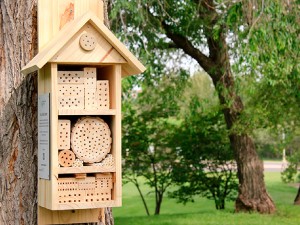

A start-up in London has found a fitting use for used face masks. Waterhaul, a company which recycles fishing nets and plastic waste, has launched a project to melt old masks into plastic blocks that will be used to make new products like dustbins. The social enterprise is trialling the initiative with a hospital which pays £550 per ton to have used PPE suits incinerated. The start-up will pay the hospital for the used face masks that can create positive outcomes from the waste.

On International Nurses Day, nurses who had gathered around the portrait of Florence Nightingale at the Government Medical College and ESI Hospital, Coimbatore, were taken by surprise when the hospital’s dean prostrated before them and thanked them profusely for their services rendered on the Covid frontline.

NASA and SpaceX used a recycled rocket booster to launch a rocket with a team of four astronauts into space. Since 2017, SpaceX has used recycled rocket boosters multiple times only to transport cargo. The ‘Crew-2’ of astronauts was launched into space by the same Falcon 9 rocket booster that sent four of their colleagues to the International Space Station (ISS) in November 2020 during the Crew-1 mission. The rocket that took off from Kennedy Space Center in Florida is now orbiting in the Crew Dragon spacecraft to begin a six-month science mission on the space station.

Zoo officials at the Nehru Zoological Park in Hyderabad raised an alarm when they saw a pack of lions wheezing with dry cough, nasal discharge and loss of appetite and the pack was tested for Covid -19. Eight lions tested positive and were found with mild symptoms. They were isolated and the zookeepers taking care of them were asked to wear protective gears and masks. The park was shut for the public as a precautionary measure and other animals were put under observation.

Bee hotels, bee stops and a honey highway are some of the techniques the Dutch have used to keep their urban bee population steady in recent years. A bee hotel is a collection of hollow plant stems or thin bamboos that provides cavities for solitary bees to nest and bee bus stops have their roofs covered in native plants to attract bees, absorb dust particles and rainwater. As part of a bee-counting exercise 11,000 people from across the Netherlands participated in the fourth edition of the national bee census and researchers have said that the results are encouraging.





